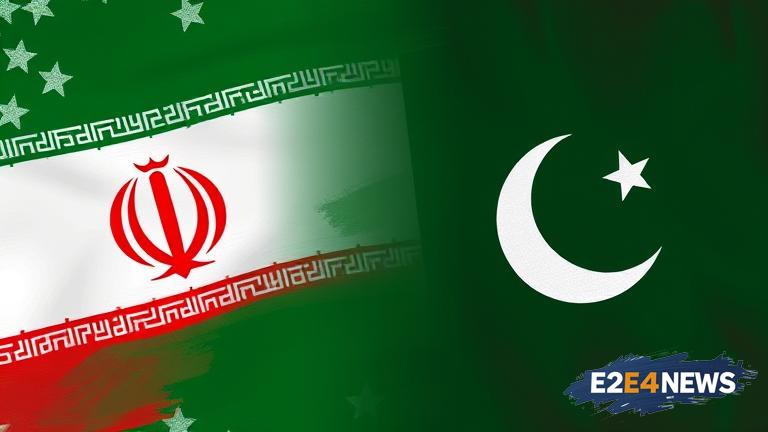Pakistan and Iran have been actively engaged in discussions to enhance their trade and economic cooperation. The two countries have a long-standing relationship and share a common border, making them natural trade partners. In recent years, they have been working to strengthen their economic ties and increase bilateral trade. One of the key areas of focus has been the development of the Pakistan-Iran gas pipeline, which is expected to provide a significant boost to the energy sector in both countries. The pipeline will allow for the transportation of natural gas from Iran to Pakistan, helping to meet the growing energy demands of the country. In addition to the gas pipeline, the two countries have also been discussing the possibility of increasing trade in other areas, such as agriculture and manufacturing. Pakistan has been looking to increase its exports to Iran, particularly in the areas of textiles and food products. Iran, on the other hand, has been seeking to increase its exports of oil and petrochemical products to Pakistan. The two countries have also been working to improve their transportation infrastructure, including the development of new roads and railways. This will help to facilitate the movement of goods and people between the two countries, making it easier to conduct trade. Furthermore, Pakistan and Iran have been discussing the possibility of establishing a free trade agreement, which would help to reduce tariffs and other trade barriers. This would make it easier for businesses in both countries to trade with each other, and would likely lead to an increase in bilateral trade. The two countries have also been working to increase cooperation in the areas of science and technology, with a focus on joint research and development projects. This cooperation is expected to lead to the development of new technologies and products, which can be used to benefit both countries. In terms of security, Pakistan and Iran have been working together to combat terrorism and other security threats. They have been sharing intelligence and coordinating their efforts to prevent the movement of terrorists and other criminals across their common border. The two countries have also been working to increase people-to-people contacts, with a focus on cultural and educational exchanges. This is expected to help build greater understanding and cooperation between the two nations. Overall, the relationship between Pakistan and Iran is strong and is expected to continue to grow in the coming years. The two countries have a lot to offer each other, and their cooperation is expected to lead to significant economic and social benefits. As they continue to work together, they are likely to face a number of challenges, including the need to overcome bureaucratic and logistical hurdles. However, with their strong commitment to cooperation and mutual benefit, they are well-placed to overcome these challenges and achieve their goals. In conclusion, the cooperation between Pakistan and Iran is a positive development that is expected to lead to significant benefits for both countries. Their focus on trade and economic cooperation is likely to lead to an increase in bilateral trade and investment, and their cooperation in other areas, such as security and science and technology, is expected to lead to a range of other benefits. As they continue to work together, they are likely to become increasingly important partners in the region, and their cooperation is likely to have a positive impact on the wider region.





